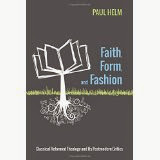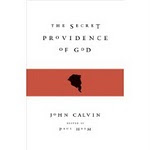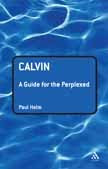The
lure of the state
The Westminster Divines saw
themselves as giving support to the state (in the form of Parliament) in its
hoped-for establishment of the Reformed religion in England. Church and state
were to join hands as two ‘ministers’ of the land, the church ministering true
religion, and the state granting to the church privileges, by outlawing or
discriminating against deviant religious groups, and quelling any expressions
of lawlessness or civil unrest vented against the church, should there be any. On this view the
external peace of the church is the responsibility of Parliament, in its role
as the promoter of the King’s peace, of ‘law and order’. It must be remembered
that the Westminster Assembly was not an assembly of any visible church, like a
general assembly of a presbyterian church that was summoned annually, but was
called and facilitated by the Parliament for this purpose, for getting it off
the ground. It was a political creation, doing the bidding of Parliament, as
the central spine of this pact, which was to be embodied in the Solemn League
and Covenant, testifies.
For its part the church by law established
was to teach its hearers the standards that the Bible expected of them in their
behaviour. Interest, including scholarly interest in this period, is currently
stressing that all of a sudden the Puritans became bothered about antinomianism
(See for example the discussion in Bob Letham, The
Westminster Assembly, 295f. and especially footnote 10.), leaving
Arminianism to take second place, as the Synod of Dort had faded. Why was this? My hunch is
that this targeting of antinomianism has less to do with the Divines’ concern
to protect the nature and efficacy of justification and sanctification, their distinctness
yet inseparability, than with showing to their new partners, the House of
Commons, that they were ready to play their part in upholding public ‘order’,
while in turn being happy to see the Commons legislate for such order.
So anything that seemed that it might upset
the peace, like the teaching of the antinomians, was controverted with gusto,
though it would seem, at least with the benefit of hindsight, that trouble
would come, if it came, from the radical sects than from a group of fairly harmless-looking ‘antinomians’ such as Crisp and
Eaton. It would be difficult to distil an avowal of licentiousness or
incitement to vice from their writings. Nowadays the threat of antinomianism is
considered in the context of the Gospel Coalition, then from the context of the
civil peace of England. There is a difference. But it makes the current stress by some on the place of the law in sanctification rather incongruous. That, at least, is what I'm arguing.
The
law and the catechisms
In the last post we noted the three-fold
uses of the law according to the Reformed – as a means of conviction of sin, as
a means for promoting civil peace, and as a rule of life for Christians. What
we find as we turn the numerous pages of the Larger and Shorter Catechisms that
are devoted to the expositions of the Ten Commandments is a blurring of these three
uses. To start with, in the exposition of the law, matters to do with ‘public
order’ are intertwined with the law as a rule of life for Christians, and the
whole exposition of the law, its place in the Catechism, is prior to and
preparatory to, the exposition of the gospel. So in the Larger Catechism the exposition
of the Decalogue is followed by questions 152 and 153.
Q,152,
What does every sin deserve at the hands
of God? A. Every sin, even the least, being against the sovereignty, goodness
and holiness of God, and against his righteous law, deserveth his wrath and
curse, both in this life, and that which is to come, and cannot be expiated but
by the blood of Christ.
Q.153,
What does God require of us, that we may
escape his wrath and curse due to us by reason of the transgression of the law?
That we may escape the wrath and curse
of God due to us by reason of the transgression of the law, he requireth of us
repentance toward God, and faith toward our Lord Jesus Christ, and the diligent
use of the outward means whereby Christ communicates to us the benefits of his
mediation.
First the law, and then the gospel. The
entire section on the law is held to be preparatory to the gospel, the first
use of the law. Then follows an exposition of the means of grace. In the case
of the Shorter Catechism, the link questions are 82-85. But the section has
material on the other two uses, intermingled in its exposition of the law, but without explicitly distinguishing one use from any
other, as far as I can see.
A
theological mess
So the entire project of promulgating ‘law
and order’ in the church through its catechisms, and therefore in a large part
of the realm of England, is a theological mess. The ‘uses’ of the law were
conflated, and expressed in the language that consciously borrowed from the OT judicial law on the one hand, and Christ and the apostolic teaching on the 'inwardness' of the law on the other. The Westminster
Standards became law in Scotland, though as we know not in England and
Wales. So the people in the Scottish pews were taught inter alia that removing ancient landmarks deserved the wrath and
curse of Almighty God. Presumably under
these circumstances few laid a finger on ancient signs, at least until the 19th
century when the Highlands were cleared in the interests of the sheep, and not
only landmarks, but entire communities were ‘removed’. But that’s another
story.
The
legacy
In England those who one day were crafting
the moral standards of a would-be presbyterian state Church found themselves
the next day forming uneasily-tolerated minority groups, though the presbyterians
mostly became unitarians. As far as I can see the Westminster standards, if they were used among these dissenting groups, remained untouched . No one
seems to have seen the incongruity of sects using the Westminster Standards
which avow the sentiments of an established church, especially in the Catechisms
of those Standards. My hunch is that the
Catechisms were forgotten. Are there any records of them being taught
and learned, vehicles of Presbyterian and Independent education, at the end of
the 17th century? Were they ever reprinted in England in the eighteenth century?
Nevertheless, when presbyterianism was
exported through such as the emigration of the dispossessed from the Highlands of Scotland and others, to what became the US, the sectarian ethos of this branch of
evangelical Protestantism remained even in the nineteenth century. The church recognised the separation of church and state, but the catechisms were meant for consumption in a state church. No one ever seems to have thought this state
of affairs was odd. The Westminster standards were a job lot, largely untouched
and untouchable, apart from the business of the state and church which affected the Confession. In the 19th century, when efforts to revise the Westminster
Confession in churches in the US made conservatives less and less inclined to
contemplate action that would rock the ark. And so – to come rapidly to the
present - in 2014 we witness solemn discussions on the place of the law in
sanctification, very much a state-church view of sanctification, but by now
involving not only the children of 17th presbyterians and independents,
but of baptists too.The newly-established Evangelical Presbyterian Church in England advertises itself as adhering without qualification to the Westminster Standards, as far as I can see.(
The significant point is that because of the dominance of the state church mentality the legacy
expresses itself regarding Christian living as chiefly the keeping of the moral
law by the promotion of a sense of duty, not by the implantation and inculcation of virtues which are the fruit of
new spiritual life.
I know, I know, anxious souls are by this
time asking, Whatever has happened to William Ames? I am coming to him, and to his rather different emphases (so it seems to me) on the
nature of sanctification. We shall look
at Ames next time.









